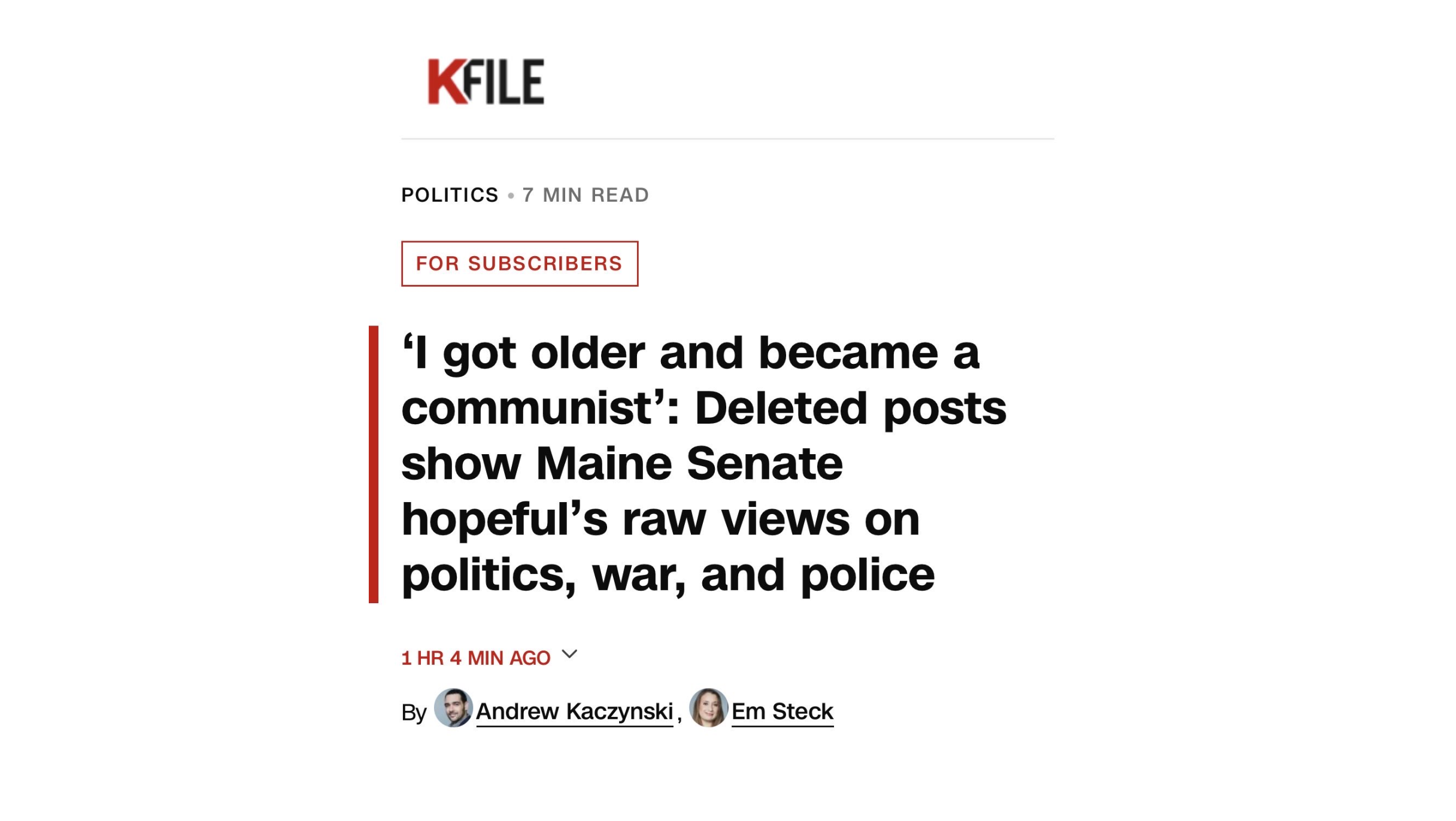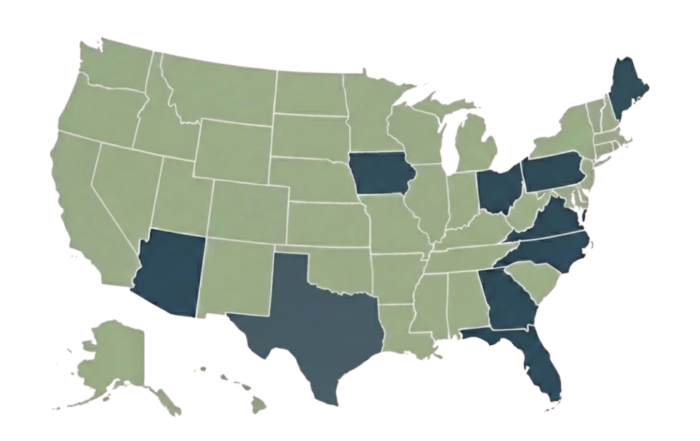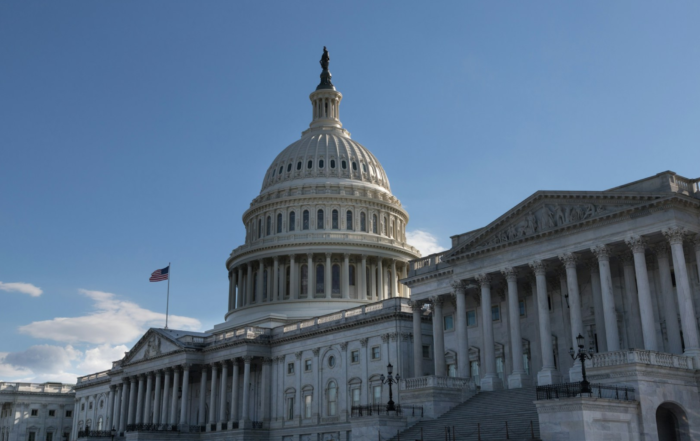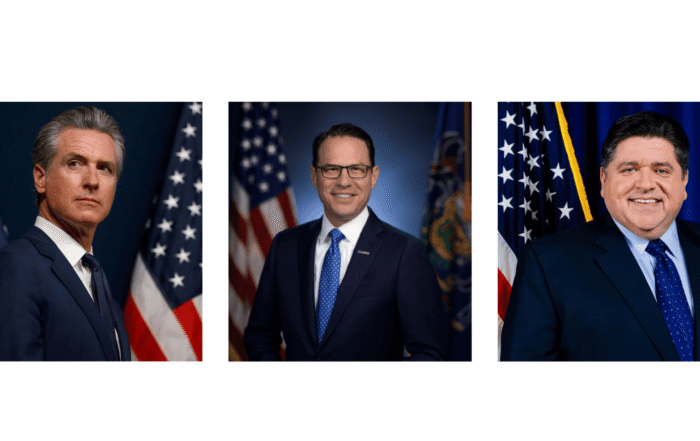Chris Moyer
Founder & President
By Chris Moyer
When CNN uncovered new remarks from a Maine Senate candidate about a disputed transmission line project, it didn’t just reignite an energy debate—it also delivered a reminder of how easily online comments can become a communications crisis.
Graham Platner, an oysterman who burst onto the political scene in August and has built surprising grassroots momentum, made a series of Reddit comments four years ago that have come back to haunt him. In a discussion about Maine’s vote to stop a hydropower transmission line from Canada to Massachusetts, he mocked another commenter’s intelligence and used an offensive term for someone with a mental handicap. In other posts, he disparaged the police, called himself a communist, and said that all white people are “racist” and “stupid.”
We can leave the debate over the transmission line for another time. What matters for business and organizational leaders—and their communications teams—are three clear takeaways from this episode.
1. AI Will Only Lead to More Embarrassing Revelations
Communicators are increasingly turning to Reddit because its data helps train large language models like ChatGPT and Gemini. But that same AI infrastructure lowers the barrier to discovery of old content from across the Internet. All it takes is a motivated opponent or competitor who won’t shy away from trying to make your life difficult.
The first generation to grow up online is now stepping into leadership roles in politics, business, and the nonprofit world. That means more public leaders than ever have a digital paper trail—and more potential for regrettable (or worse) comments to surface. We’ve known for years that anything you say online can eventually become public, whether you’re running for office, leading a company, or competing for grants and contracts, but it’s becoming even easier to unearth past comments—even if they’ve been deleted.
Platner never posted under his real name, instead using an anonymous handle. But once he began telling his story as a candidate, it became easy to identify him.
2. Leaders Should Engage Their Comms Team Early
You can’t erase what’s already out there, but you can prepare for it. Leaders should be transparent with their communications teams about any information that’s reasonably likely to surface and could trigger a PR crisis. It’s much easier to map out a response strategy in calm times than during a media firestorm. Often, more than one person’s reputation is at stake.
Platner’s Reddit posts were deleted by his team before he launched his campaign, so obviously his team knew about them and realized they could become a problem. Either Platner specifically told his team about the comments, or a researcher they hired to conduct self-research found them. And they developed a plan for dealing with this eventual revelation and appear to be executing it as intended.
3. Don’t Hide from the Press
When damaging information surfaces, avoiding the press only deepens reporters’ resolve to dig in further. To Platner’s credit, he sat down with CNN’s Andrew Kaczynski, a veteran investigative journalist known for uncovering stories like this. I can’t recall many of his subjects actually sitting down with him for an interview. Platner apologized for some of the comments and offered context to try to mitigate the fallout.
He won’t come out of this unscathed—there’s plenty here for his opponents to exploit—but by engaging immediately, he gives his supporters something to defend him with and earns a measure of respect from reporters for not hiding. While there are of course exceptions, leaders in the business and nonprofit worlds are generally well-served to take the same approach should they ever face such a crisis situation of their own.
The episode surrounding Graham Platner’s resurfaced Reddit comments offers clear lessons for leaders and communicators. AI makes finding problematic information, and there are more ripe targets than ever as a new generation takes on public leadership roles. A good communications team, though, can minimize these crises, especially if they can build a plan in advance. Then it’s critical to maintain poise and execute the plan when the storm arrives. How leaders react can be just as important to the final outcome as the initial news itself.
Check out our recent insights and conversations:
Sign up for our newsletter
Receive updates on our work, industry news, and more.





